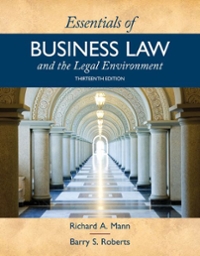A landlord owned several residential properties, one of which was subject to a local rent control ordinance.
Question:
A landlord owned several residential properties, one of which was subject to a local rent control ordinance. The local rent control administrator determined that the landlord had been charging rents above the levels permitted by the ordinance and ordered him to refund the wrongfully collected rents to the affected tenants. The landlord did not comply with the order. The landlord subsequently filed for relief under Chapter 7 of the Bankruptcy Code, seeking to discharge his debts.
The tenants filed an adversary proceeding against the landlord in the bankruptcy court, arguing that the debt owed to them arose from rent payments obtained by “actual fraud” and that the debt was therefore nondischargeable under the Bankruptcy Code. They also sought treble damages and attorneys’
fees and costs pursuant to the state Consumer Fraud Act. The bankruptcy court ruled in favor of the tenants, finding that the landlord had committed “actual fraud” and that his conduct violated state law. The court therefore awarded the tenants treble damages totaling $94,147.50. Does the Bankruptcy Code bar the discharge of treble damages awarded on account of the debtor’s fraud? Explain.
Step by Step Answer:

Essentials Of Business Law And The Legal Environment
ISBN: 9781337555180
13th Edition
Authors: Richard A Mann, Barry S Roberts





